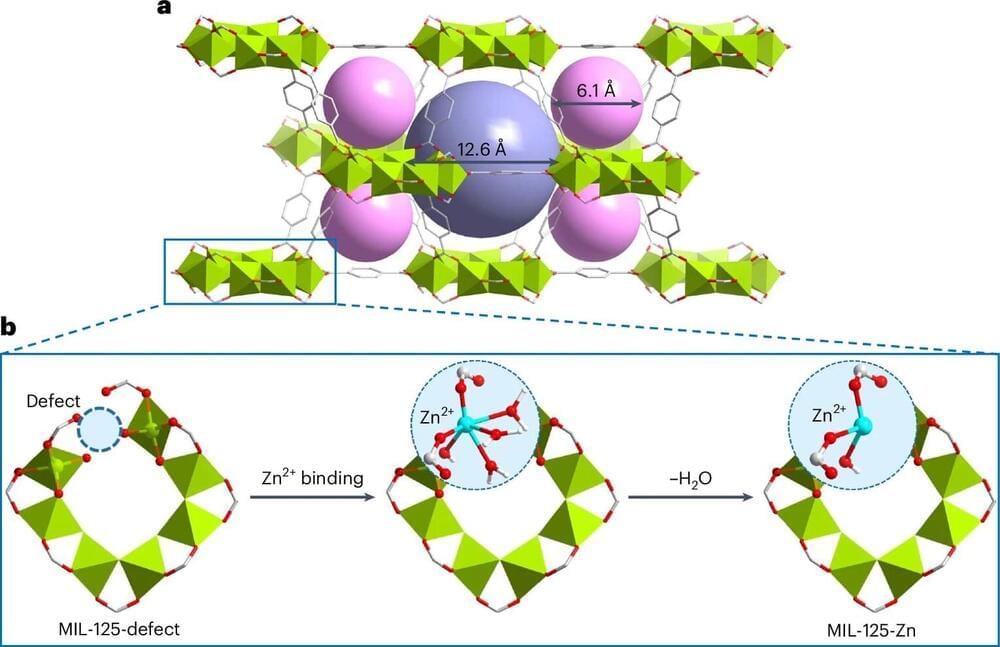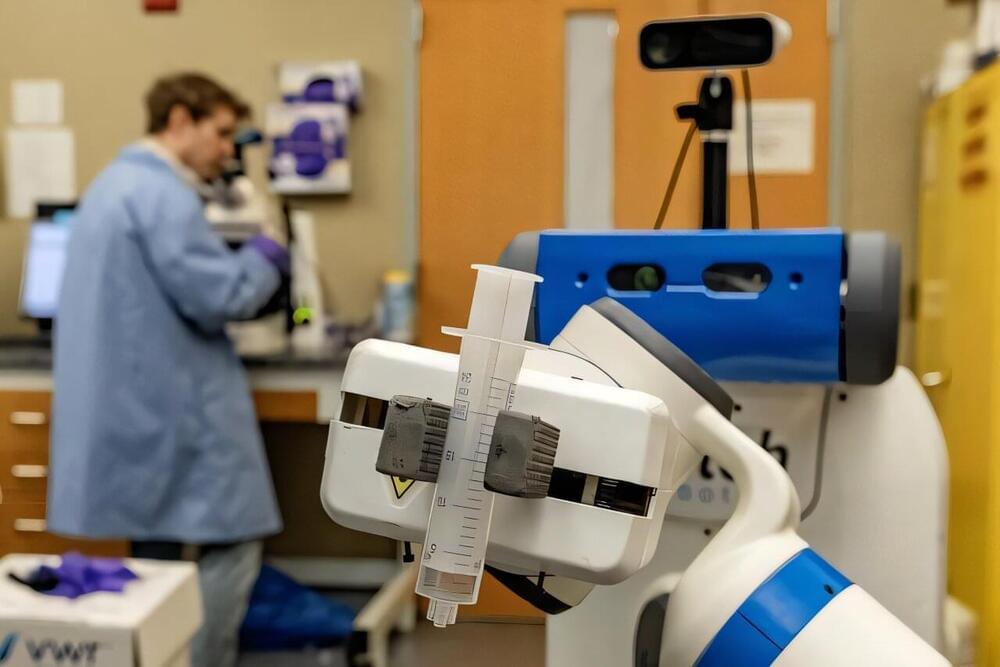Scientists have developed a new material capable of capturing the harmful chemical benzene from the polluted air, offering a potential solution for tackling a major health and environmental risk.


There are rare cells in the gut called enteroendocrine cells (EECs) that could be manipulated in a variety of ways to detect or treat disease.
The trillions of microbes in our gastrointestinal tract, known as the gut microbiome, are crucial to the body; the gut microbiome aids in digestion, nutrient absorption, and influences our health in different ways. But the body also has to be protected from all of those microbes, which are kept behind a tight barrier. But if the intestinal barrier is dysfunctional, or leaky, serious problems can arise.
There are cells in the gut called enteroendocrine cells (EECs) that can generate hormones, which may have a variety of effects on the body. EECs release hormones in response to cues like food intake and stomach stretching. The hormones can then influence physiological processes related to digestion or appetite. Scientists have now found receptors on EECs that control hormone release. It may one day be possible to alter these receptors to treat disease. The research has been reported in Science.
Researchers at The Jackson Laboratory (JAX), the Broad Institute of MIT and Harvard, and Yale University, have used artificial intelligence to design thousands of new DNA switches that can precisely control the expression of a gene in different cell types. Their new approach opens the possibility of controlling when and where genes are expressed in the body, for the benefit of human health and medical research, in ways never before possible.
“What is special about these synthetically designed elements is that they show remarkable specificity to the target cell type they were designed for,” said Ryan Tewhey, PhD, an associate professor at The Jackson Laboratory and co-senior author of the work. “This creates the opportunity for us to turn the expression of a gene up or down in just one tissue without affecting the rest of the body.”
In recent years, genetic editing technologies and other gene therapy approaches have given scientists the ability to alter the genes inside living cells. However, affecting genes only in selected cell types or tissues, rather than across an entire organism, has been difficult. That is in part because of the ongoing challenge of understanding the DNA switches, called cis-regulatory elements (CREs), that control the expression and repression of genes.

ABOVE: The placenta’s labyrinth zone (red), responsible for nutrient exchange between mother and fetus, is reduced in fetuses with dysbiotic fathers (lower panel) compared to healthy fathers (upper panel). Ayele Argaw-Denboba.
The microbiome has a profound impact on host health that extends to the host’s young ones. Studies in mice have shown that maternal gut bacteria play a role in offspring behavior and placental growth during pregnancy.1,2 Yet, the effects of the paternal microbiome on the health of their progeny remained relatively unexplored.
In a new study, scientists found that altering the gut microbiome of male mice negatively affected the health and lifespan of their offspring through epigenetic changes in the sperm.3 The results, published in Nature, offer insights into a gut-germline axis that mediates the effects of the microbiome on health and disease across generations.

UC Santa Barbara researchers discovered that single, vigorous exercise sessions, especially under 30 minutes, improve cognitive functions like memory and executive function. Future studies will explore whether combining physical activity with cognitive tasks yields even greater benefits.
Years of research on exercise have long supported the idea that consistent workouts over time lead to both physical and cognitive benefits. But what about short, intense bursts of exercise? A team of scientists at UC Santa Barbara has taken a closer look.
Their study was recently published in the journal Communications Psychology.

A new study shows that using DNA analysis for newborn screening can detect far more serious, yet treatable, health conditions than traditional methods. The study, called GUARDIAN, is one of the first large-scale projects to use genome sequencing for newborns, and early results suggest that this approach could greatly improve medical care for children.
Early findings from a study on newborn screening reveal that DNA analysis detects significantly more preventable or treatable serious health conditions than traditional screening methods. Most parents offered the option of genome sequencing prefer it.
The study, called GUARDIAN, is among the first large-scale research projects globally to use genome sequencing for newborn screening. It is also the first to release preliminary results.
Finding ways to connect the human body to technology could have broad applications in health and entertainment. A new “electric plastic” could make self-powered wearables, real-time neural interfaces, and medical implants that merge with our bodies a reality.
While there has been significant progress in the development of wearable and implantable technology in recent years, most electronic materials are hard, rigid, and feature toxic metals. A variety of approaches for creating “soft electronics” has emerged, but finding ones that are durable, power-efficient, and easy to manufacture is a significant challenge.
Organic ferroelectric materials are promising because they exhibit spontaneous polarization, which means they have a stable electric field pointing in a particular direction. This polarization can be flipped by applying an external electrical field, allowing them to function like a bit in a conventional computer.
Science And Engineering For Humanity — Dr. David Agus, MD — Founding Director & Co-CEO, Ellison Institute of Technology.
Dr. David B. Agus (https://davidagus.com/) is one of the world’s leading doctors and pioneering biomedical researchers.
Dr. Agus is the Founding Director and Co-CEO of the Ellison Institute of.
Technology (https://eit.org/) and a professor of medicine (https://keck.usc.edu/faculty-search/d…) and engineering (https://viterbi.usc.edu/directory/fac…) the University of.
Southern California.
A medical oncologist, Dr. Agus leads a multidisciplinary team of researchers.
dedicated to the development and use of technologies to guide doctors in making health-care decisions tailored to individual needs.
An international leader in global health and approaches for personalized healthcare, Dr. Agus serves in leadership roles at the World Economic Forum and is co-chair of the Global Health Security Consortium (https://institute.global/tags/global–…). He is also a CBS News contributor.

Science laboratories across disciplines—chemistry, biochemistry and materials science—are on the verge of a sweeping transformation as robotic automation and AI lead to faster and more precise experiments that unlock breakthroughs in fields like health, energy and electronics.
This is according to UNC-Chapel Hill researchers in a paper titled “Transforming Science Labs into Automated Factories of Discovery,” published in Science Robotics.
“Today, the development of new molecules, materials and chemical systems requires intensive human effort,” said Dr. Ron Alterovitz, senior author of the paper and Lawrence Grossberg Distinguished Professor in the Department of Computer Science. “Scientists must design experiments, synthesize materials, analyze results and repeat the process until desired properties are achieved.”

By Chuck Brooks & Dr. Thomas A. Cellucci, MBA
Co-written by Chuck Brooks and Dr. Thomas A. Cellucci, MBA
Verticals that will be most impacted by innovative developments in technology and science are the disciplines of medicine, biotechnology, and health. Those industry verticals will see a profound growth of technological innovation in the near future.
Twenty years ago, Craig Venter and Daniel Cohen remarked, “If the 20th century was the century of physics, the 21st century will be the century of biology.” Since then, there have been some amazing advances in the fields of biotechnology and bioscience, with the promise of even more astounding breakthroughs to come. Over the past decade, we have seen significant strides in artificial intelligence, with radical long-term implications for every human endeavor. And now the convergence of the fields of physics, biology, and AI promises a far greater impact on humanity than any one of these fields alone. Even though a path to successfully integrating these fields exists, it is neither easy nor clear cut—but if done correctly, will revolutionize medicine and human health.